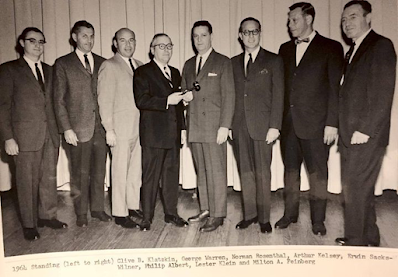German Names
10 Common
German Surnames
Here are 10 of
the most popular German surnames found around the world:
Becker: on
the surface, it may seem obvious that the Becker’s were bakers by trade.
However, there is strong evidence to support that Becker may also have
identified a family as carpenter or toolmakers. Whatever the case may be, the
Becker’s served an essential function in any German city.
Hoffmann: the
peasant farmers of rural Germany would be the first to bear this occupational
name, as they toiled on the hoff (farm). The name would later become a surname
used for the farm owners, managers, and foremen, rather than the day-to-day
workers in the fields.
Klein: a
descriptive surname that means “small.” This would have been used to describe
the original namesake’s physical stature. The popularity of the surname Klein
paints an interesting and rather humorous picture of a small individual who,
despite their size, made a large mark on history.
Meyer: derives
from the medieval German word for “superior” or “mayor” (meiger) which could be
interpreted to mean a feudal lord or land overseer. As wealthy landholders, the
Meyer’s held a high-class status.
Mueller: an
occupational last name meaning “miller.” Almost every language has a last name
meaning miller as a result of the job’s traditional importance.
Schmidt: another
occupational surname, the German form of “Smith.” Blacksmiths, coppersmiths,
goldsmiths, gunsmiths, and locksmiths were all highly valued jobs in late
medieval society.
Schneider: the
Schneider’s were tailors by trade. Coming from the word “schneiden,” meaning
“to cut,” these were the clothiers who dressed the barons and baronesses of
Renaissance Europe.
Schulz: coming
from the German root word “schulteize” (tax collector), Schulz could also mean
sheriff or magistrate. In essence, these were the police who protected the
investments of their feudal lords and kept the peace in their particular
townships. There is also a Jewish origin to the name (also written as Schultz)
which may have meant rabbi.
Wagner: the
teamsters of their day, Wagner comes from the early German word “waganari,”
which could mean “wagon maker” or “wagon rider.” The Wagner’s were the
transporters, the traders, the men and women who drove goods to market and
ensured that trade remained open and the people did not wait for food or
luxuries.
Wolf: a
descriptive German last name. Wolves were often used as heraldic animals and as
symbols of independence and skill in hunting or battle, suggesting that Wolf
was given to people for their nobler qualities.
Understanding
Our German Ancestors
In many other
cultures, we find there is a much higher density of patronymic and geographical
last names, but the propensity of occupational German surnames tells us
something different about our Deutsch ancestors themselves: they valued their
work above all else. What a person did was as, or more, important than where
they came from or who their father was.
It is
interesting to note that many of our German ancestors who arrived at Ellis
Island during the late 1800s and early 1900s became the Smiths, Bakers,
Millers, and Tailors we know today. This is due to both the American
immigration officials and the immigrants themselves choosing to use the English
translation of the German surnames, to ensure societal acceptance and
facilitate rapid cultural assimilation.
https://blog.genealogybank.com/common-german-last-names-their-meanings.html





Comments
Post a Comment